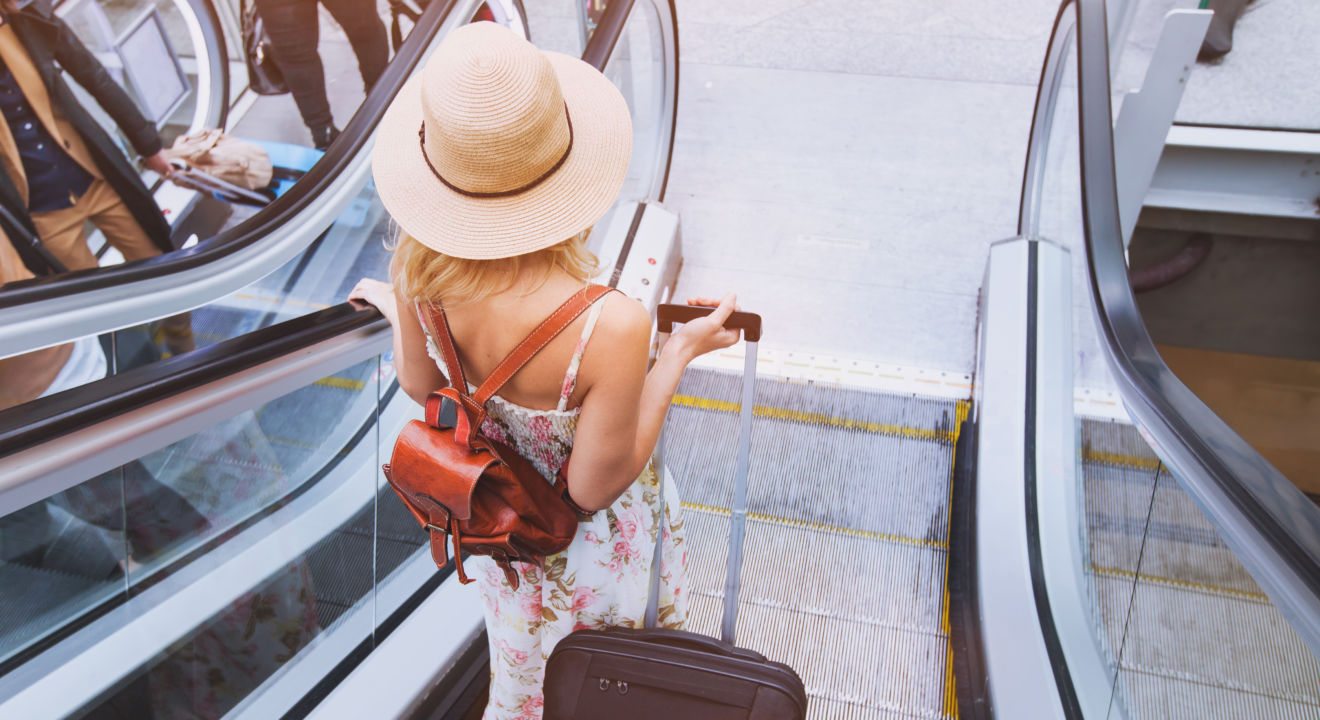Culture September 17, 2016


You have just arrived at your first vacation in the last two years, ready to lounge on the beach and surrender to the warm, summer sun. As you lay on your towel, your breathing slows and your muscles relax. You’re ready to take on the world like a boss.
What’s stopping you from completely letting go? For starters, you know that when you fly back home, two weeks of living in a different time zone will flip your sleeping patterns upside down. The very idea of getting less beauty sleep and yawning your way through work on your first week back makes you groan. Sure, you’ve heard that drinking a lot of water helps, but you just don’t know if it will be enough.
Want some secret weapons on your side? Then keep reading to learn of ENTITY’s top tips for curing jet lag!
A few days prior to leaving on your trip, Huffington Post suggests that you try going to bed a few hours earlier if traveling east, and a few hours later if traveling west. This will allow your circadian rhythm to adjust to the new setting, speeding up the process.
To explain, think about how fast the time changes as you travel. The clock changes one hour for every 15 degrees you travel east or west from the Greenwhich Meridian, an imaginary line that passes through Greenwhich, London. As Huffington Post explains, jet lag is caused by a flight’s direction, not its length.
So if you’re traveling east and you want to adapt to the new time, you have to, as The New York Times explains, “advance your body clock” by sleeping earlier than you normally would. If you’re traveling west, then you “delay your body clock.” Get the idea?
The New York Times also shares that experts say, “Light is the primary environmental cue telling your body’s clock when to sleep and when to wake.” Thus, controlling jet lag is about controlling light and darkness.
So, if you’re traveling east, expose yourself to light early (like in the afternoon) in order to advance your body clock and sync it with the new time zone. On the other hand, if you’re traveling west, expose yourself to light at dusk and the early part of the evening to delay your body’s clock.
After arriving at your destination, spend your day outside to help your body adjust to new time zones. If you traveled west, go out in the mornings and if you travel east, spend your afternoon outside. This will help your circadian rhythm adjust appropriately.
Basically, as The New York Times writes, “Seeing light will help you to be more alert and to reset your internal clock to [local time].” Who would’ve thought that you could control your health by simply turning a light switch on and off?
Depending on which direction you are traveling, you should use sunglasses to limit your exposure to natural and artificial light.
Steven W. Lockley, a neuroscientist specializing in sleep medicine at Brigham and Women’s Hospital and Harvard in Boston, uses a 7 p.m. flight from New York that is set to arrive in London at 7 a.m. as an example. In this case, you would be traveling east. Because you need to advance your internal clock, you need to avoid any kind of light.
Exposing yourself to any light, including the light in the airplane, will delay your body clock. So, what do you do? Put on your shades!
“People think you’re a rock star,” Lockley says.
Once you arrive in London in the morning, it’s also wrong to expose yourself to the new time zone right away because your internal clock is still set to New York time. Trying to adjust too quickly will only tire you faster. Instead, gradually expose yourself to the new time zone by controlling your exposure to light. Who knows – the locals might even think you’re a foreign celebrity as you walk around in sunglasses!
WebMD suggests changing your watch while you’re on the plane. Although this is mostly a psychological trick, Allison T. Siebern, Ph.D., a fellow in the Insomnia and Behavioral Sleep Medicine Program at the Stanford University Sleep Medicine Center, says changing your watch “helps you get into the mindset of what you’ll be doing in the place where you’re going.”
If you don’t have a watch or if that doesn’t work, sleeping is a good alternative, especially if it’s currently nighttime at your destination. If it’s daytime, however, you should try to stay awake.
You can pass the time away on a plane flight by reading, watching entertaining videos or just staring out the window to enjoy the beautiful view. And if you need to sleep, pop in some plugs and pull on your favorite eye mask to help you block out noise and light.
These may not work for everyone, but jet-lag remedies like melatonin or other herbal supplements can help. If you need help sleeping, take melatonin at night when traveling east and in the morning when traveling west.
WebMD also suggests staying hydrated and exercising. Also drink lots of water before, during and after your flight to counteract dehydration – and it won’t just help your skin. Even mild dehydration can cause your blood to thicken, forcing your heart to pump harder to transport blood to your organs. Because your heart is working harder, your body will start to feel fatigued.
If all else fails, you can, if possible, arrive at your destination a couple days earlier than needed to give your body time to adjust to the change in time zone. With the right tips and tricks, jet lag doesn’t have to interfere with a fun vacation or an easy flight home; instead, you can fully embrace the joys of traveling and have such a good time, you can’t wait to do it all over again.